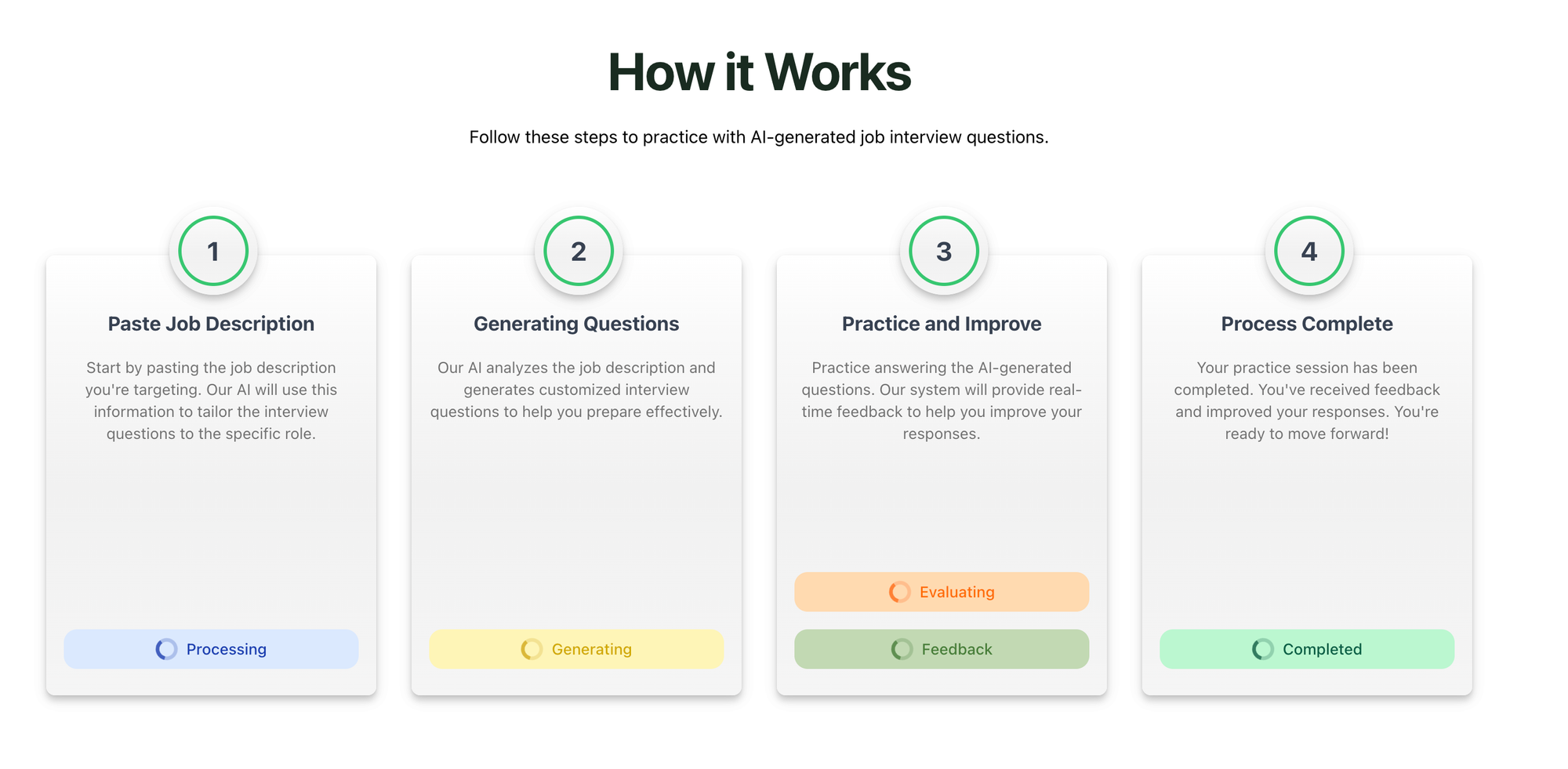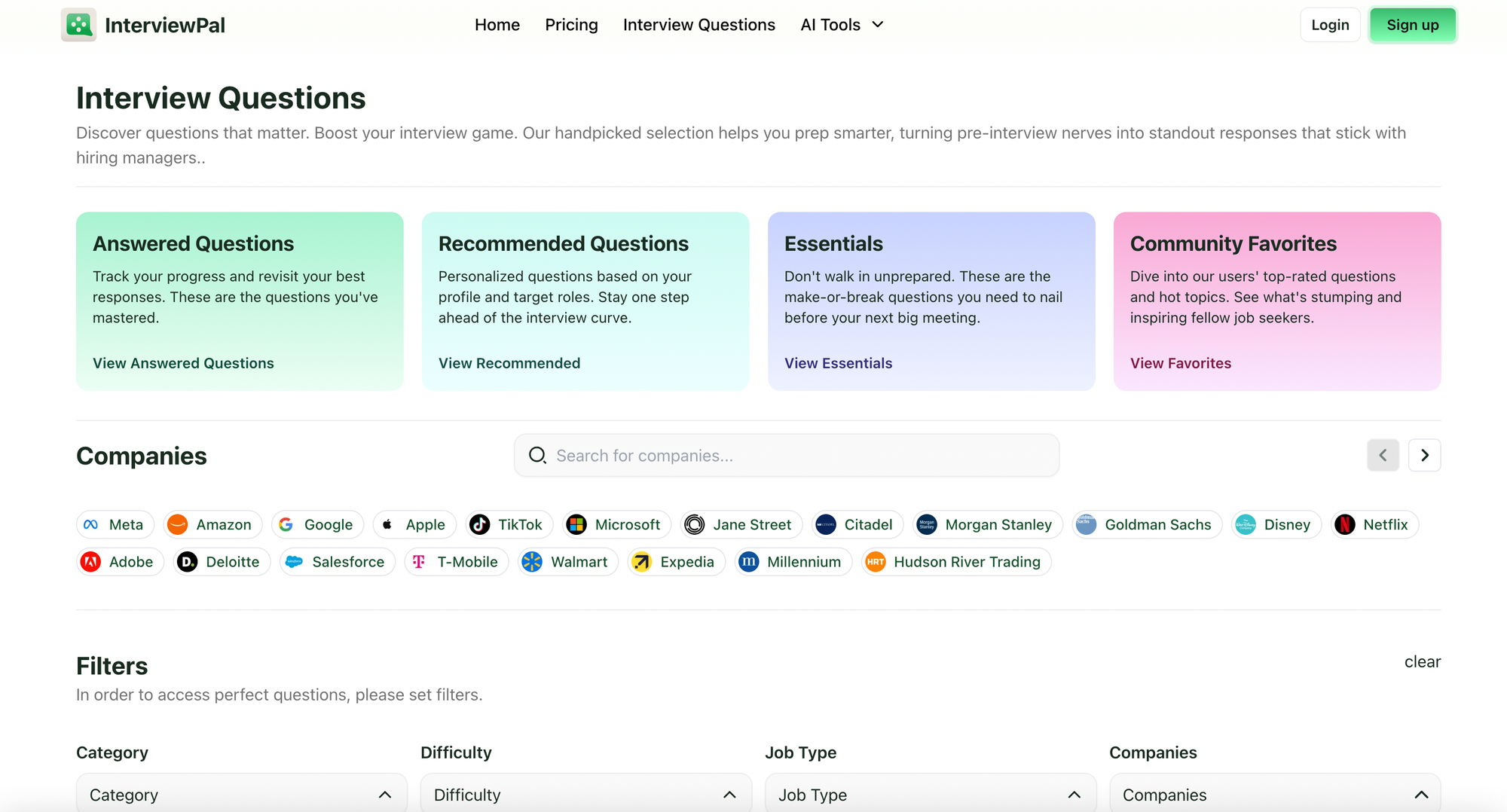In the high-stakes world of job hunting, preparation can make or break your chances. But let's face it: generic interview guides are about as useful as an umbrella in a hurricane. That's where Job AI, the latest innovation from us, comes into play – and it's causing quite a stir in recruitment circles.
As a veteran of countless hiring campaigns, I've seen my fair share of interview prep tools. Most of them are, frankly, a waste of time. But Job AI? It's a whole different ball game.
Here's the deal: You feed this tool a job listing, and it serves up 10 tailored questions that the hiring manager is likely to ask. It's like having a mole in the HR department, without the ethical quandaries or potential legal issues.
Now, I know what you're thinking. "Sounds too good to be true." I was skeptical too. But after putting Job AI through its paces, I'm impressed. This isn't just another AI tool throwing buzzwords at the wall and hoping something sticks. It's smart. Really smart.
Let me give you an example. Last week, I was helping a client prep for a senior product manager role at a fintech startup. We plugged the job listing into Job AI, and the questions it generated were spot-on:
- "How would you balance the need for rapid product iteration with regulatory compliance in the fintech space?"
- "Can you walk us through a time when you had to pivot a product strategy based on user feedback?"
- "What metrics would you prioritize to measure the success of our mobile app, and why?"

These aren't your run-of-the-mill interview questions. They're nuanced, role-specific, and exactly the kind of thing a savvy hiring manager would ask. My client walked into that interview feeling like she had the inside track – because, in a way, she did.
But here's where it gets really interesting. Job AI isn't just about helping you parrot the right answers. It's about giving you a framework to showcase your experience and thought process. It's prompting you to think critically about the role and the company's needs before you even step foot in the interview room.
And let's talk about confidence for a moment. There's something incredibly empowering about walking into an interview knowing you've done your homework. Not just the usual "I've memorized your about page" homework, but deep, insightful preparation. It shows in your body language, in the clarity of your responses, in the thoughtful questions you ask in return.
Now, I can already hear the objections. "But isn't this cheating?" Absolutely not. Job AI isn't giving you a script to memorize. It's giving you insight into what matters for this specific role. You still need to draw on your own experience, skills, and judgment to formulate compelling responses. Think of it as studying game film before a big match. You still have to play the game, but you're going in with a solid game plan.
What really sets Job AI apart is its ability to pick up on the subtle cues in a job listing. It's not just keying in on obvious requirements like "5 years of experience" or "proficiency in Python." It's reading between the lines, catching the nuances that hint at the company's pain points and priorities.
For instance, if a job listing mentions "fast-paced environment" three times, Job AI might generate a question about how you handle competing deadlines. If there's an emphasis on cross-functional collaboration, you can bet there will be a question about your experience working with diverse teams.
This level of insight is invaluable, especially when you're gunning for a role in a new industry or at a higher level than you're used to. It gives you a chance to reframe your experience in a way that's directly relevant to the challenges of the role.
But perhaps the most exciting aspect of Job AI is what it represents for the future of career development. We're entering an era where technology isn't just automating tasks – it's augmenting human potential. Tools like Job AI are democratizing access to high-quality interview prep, leveling the playing field for job seekers regardless of their network or background.
Of course, at the end of the day, no tool can guarantee you'll land the job. The human element – your unique experiences, your personality, the chemistry you have with the interviewer – will always play a crucial role. But Job AI gives you the best possible foundation to let those human qualities shine.
In my two decades in the recruitment space, I've seen a lot of tools come and go. Most of them are flashes in the pan, here today and gone tomorrow. But Job AI? I have a feeling this one's going to stick around. It's addressing a real need in a smart, sophisticated way.
So, the next time you're staring down the barrel of a big interview at Glassdoor, give Job AI a shot. You might be surprised at the insights it uncovers. And who knows? It might just give you the edge you need to land that dream job.
In a world where AI is often seen as a threat to jobs, it's refreshing to see a tool that's firmly on the job seeker's side. Job AI isn't here to replace human intelligence, but to enhance it. To give you the insights you need to present your best self. Because at the end of the day, that's what interviewing is all about – showing the world what you're capable of.



